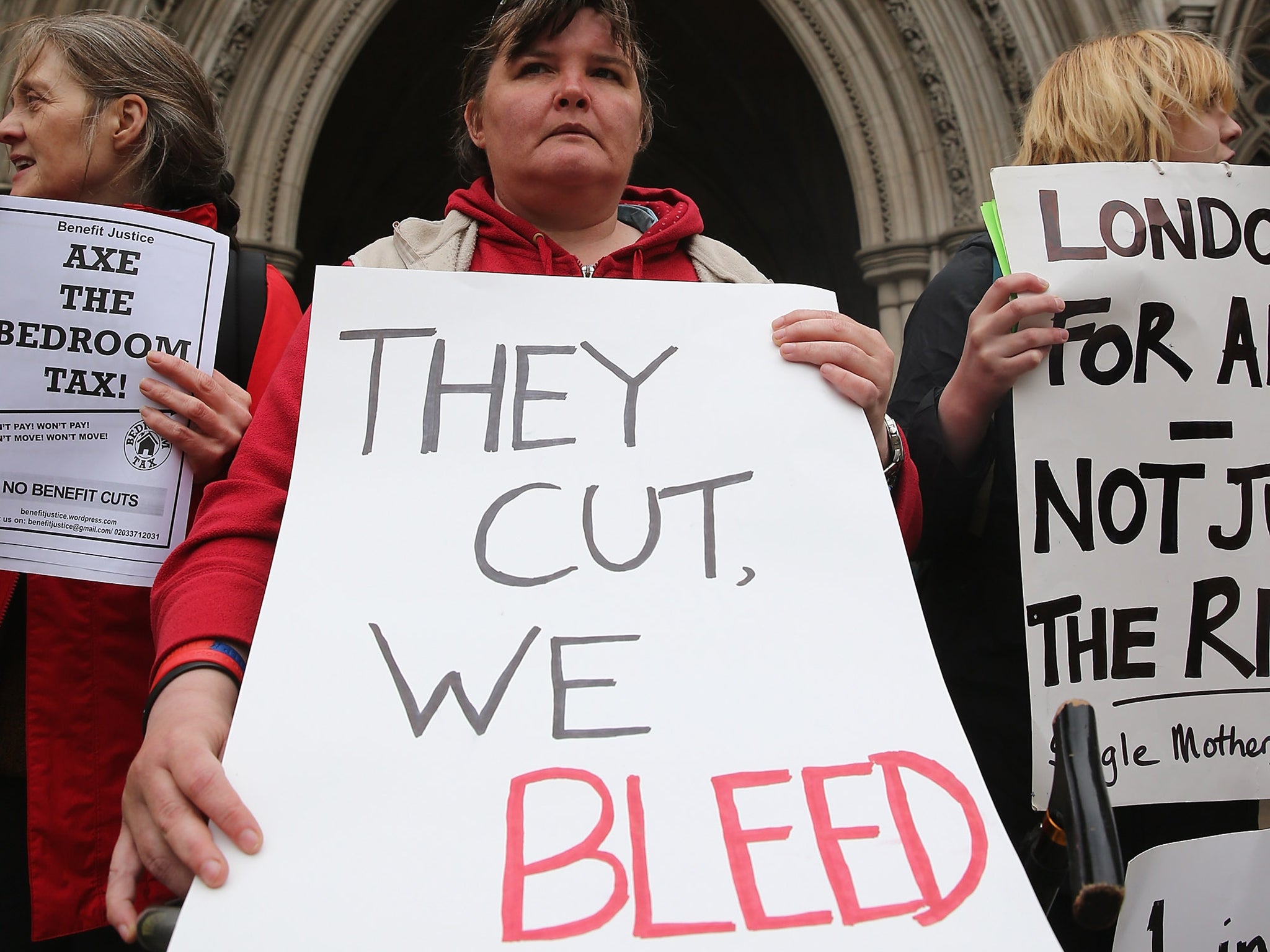Government urged to change ‘failing’ benefit system as Amber Rudd scraps repeat tests for disabled pensioners
Charities say people of all ages are suffering from ‘flawed and stressful’ assessments

Your support helps us to tell the story
From reproductive rights to climate change to Big Tech, The Independent is on the ground when the story is developing. Whether it's investigating the financials of Elon Musk's pro-Trump PAC or producing our latest documentary, 'The A Word', which shines a light on the American women fighting for reproductive rights, we know how important it is to parse out the facts from the messaging.
At such a critical moment in US history, we need reporters on the ground. Your donation allows us to keep sending journalists to speak to both sides of the story.
The Independent is trusted by Americans across the entire political spectrum. And unlike many other quality news outlets, we choose not to lock Americans out of our reporting and analysis with paywalls. We believe quality journalism should be available to everyone, paid for by those who can afford it.
Your support makes all the difference.Disability charities have called for a “radical overhaul” of the benefit assessment process after the government promised that hundreds of thousands of disabled pensioners would no longer be forced to undergo repeat tests.
From the spring around 270,000 disabled pensioners will no longer have to through “unnecessary” reviews to keep on claiming the personal independence payment (PIP), the work and pensions secretary Amber Rudd will announce in a Tuesday speech.
Disability charities have urged the government to go further so PIP claimants of all ages are spared “stressful” checks on the severity of their condition.
“While it’s good news that older disabled people will no longer have to go through unnecessary and stressful reassessments, millions of others will still be stuck in a failing system,” said Genevieve Edwards, director of external affairs at the MS Society, which helps people suffering from multiple sclerosis.
Mark Hodgkinson, chief executive at disability charity Scope, said: “We are pleased that the government recognises that welfare assessments aren’t working for disabled people … But a more radical overhaul of the PIP and ESA [employment and support allowance] tests is needed and we would urge the secretary of state to commit to this further reform.”
PIP was introduced to replace the Disability Living Allowance (DLA) in 2013, and more than 1.9 million people claim the benefit, according to government figures. It is available to anyone who needs help with daily activities or getting around because of a long-term illness or disability.
Ms Rudd will set out changes to the assessment process in a speech to Scope and is expected to draw on her own family experience of disability.
“Disabled pensioners have paid into our system for their whole lives and deserve the full support of the state when they need it most,” she will say. “The changes I am setting out today, including stopping unnecessary reassessments for disabled pensioners, are a step forward in improving quality of life for the UK’s 14 million disabled people.”

Welfare campaigners and disability charities have repeatedly criticised the “flawed” assessment process.
A report by the Disability Benefits Consortium (DBC) on PIP found many were not receiving the right level of financial support under PIP to manage the extra costs they face.
Last January a court ruling found the assessment process was unfair to people with mental health conditions. The Department of Work and Pensions (DWP) announced it would not challenge the ruling and around 220,000 people were expected to receive higher rates of PIP as a result.
Figures released in December show 72 per cent of people who lodge a tribunal appeal after being denied PIP go on to win their case.

The charity Parkinson’s UK said the government needed to urgently address “failings in the system” which have led to the huge majority of decisions being overturned.
Michael Griffin, senior policy and campaigns adviser at Parkinson’s UK, said: “While this is a positive announcement by the secretary of state for work and pensions, unfortunately it is only a minor improvement to a fundamentally flawed system.
“Even with this change, there are still more than 6,000 people with Parkinson’s who won’t be protected from the unnecessary and stressful PIP reassessments.
“Under PIP, people are not being given the right decision first time and are forced to appeal at a tribunal, where 72 per cent of decisions are over-turned anyway.”
In other measures, Ms Rudd will say the government is looking to merge the work capability assessment – used to determine ESA claims – and the PIP assessment process to create a more “joined-up” approach.
But Ms Edwards, external affairs director at the MS Society, said the merger of ESA and PIP assessments would only be “tinkering around the edges”.
She said: “Right now, neither adequately captures the reality of living with an unpredictable condition like MS, so bringing them together won’t make things better.”
Join our commenting forum
Join thought-provoking conversations, follow other Independent readers and see their replies
Comments